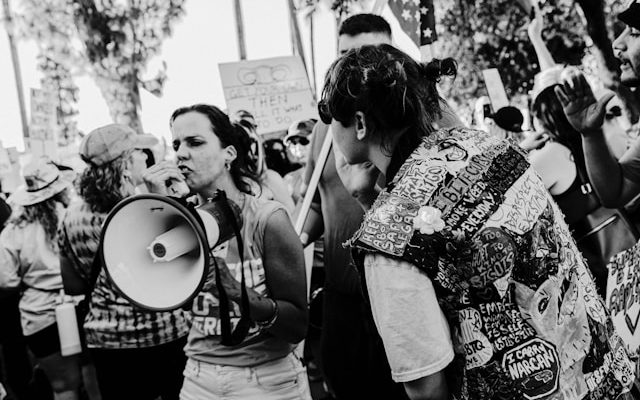Protest. Image credit: Unsplash/Lauren Mitchell
Montreal/CMEDIA: Montreal police was reportedly called earlier this week by the Canadian Association of Journalists (CAJ) to immediately drop the ‘mischief’ charge levied against Savanna Craig, a journalist with CUTV, who was covering a protest at a downtown bank earlier this week.
A pro-Palestinian sit-in of a bank in downtown Montreal on Apr 15 led to the arrest of 45 protesters, said the Montreal Police.
Following the receipt of a tip from a source, Craig attended the protest on Monday and explained to Montreal police officers several times that she was attending the protest as a journalist.
After she was questioned by officers about her affiliation, she provided them with a press pass that showed her name, her employer’s name, her job title, a photo, and a bar code that linked to the CUTV social channels.
She was told by the officers present at the site of the protest that she didn’t ‘look’ like a journalist because, for example, a press vest often worn by correspondents in conflict zones was not worn by her.
Craig confirmed in her talk with the CAJ that with her sole focus on documenting events, she did not participate in any protest activities.
“Every time a journalist is prevented from doing their job, the public’s right to know is irreparably harmed,” Brent Jolly, president of the CAJ reported saying.
“This is another example of publicly-funded agencies erecting roadblocks that prevent journalists from doing their jobs that help keep their communities informed. Whether it’s being threatened with detention and/or arrest; subjected to so-called exclusion zones; or becoming prey to obsequious reasoning used to justify misguided actions, authorities are threatening to undermine the democratic legitimacy of the institutions they purport to serve.”
Canada’s largest national professional organization for journalists from all media, the CAJ represents members across the country with its primary roles to provide high-quality professional development for its members and public-interest advocacy.





